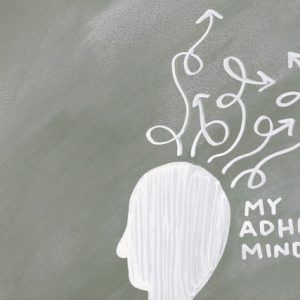“Do you hate yourself? Because, you must really hate yourself to put yourself through this over and over again when you already know how this will end,” I would tell myself after another day of putting off some work that had a deadline. This would happen on days when I tried to push myself to work but I just couldn’t.
“Angie, you are so disorganised!” My sister would tell me almost every day when she came home from work and I had spent my day working from home without actually doing any work. “You need to have a schedule! You cannot sleep all day and struggle to work all night. That’s not how the world works. You fail to plan and end up working day and night to meet deadlines that you can’t even do anything else!”
And that is exactly what I was doing. I knew it. I was also trying so hard to break that cycle that I had been through so many times in my life. You just have to create a routine, have discipline, plan, focus, organise yourself, get yourself in order, and don’t let your emotions control you and how you work. I would repeat this to myself so many times. I knew I had a problem, I just didn’t know what it was.
Sometimes I would sit in deep thought, and try to map out the recurring patterns. I thought this was either my fault or something I was entertaining and needed to root out. It never occurred to me that this could be a condition.
ADHD
Attention deficit or hyperactivity disorder, or ADHD, is a neurological or psychological disorder that is associated with inattentiveness, lack of focus, hyperactivity and impulsivity. There are three types of ADHD; inattentive, hyperactive-impulsive and combined inattention and hyperactivity-impulsivity ADHD. ADHD affects different individuals differently. People who have ADHD can be said to be on a spectrum.
The predominantly inattentive type of ADHD – previously called attention deficit disorder (ADD) – is often characterised by symptoms of forgetfulness and poor focus, organisation and listening skills. This often resembles a mood disorder in adults while children may appear spacey or apathetic.
Certain symptoms lead to the diagnosis of this type of ADHD. These include problems staying focused on tasks or activities, failing to pay attention to details leading to careless mistakes, zoning out in the middle of a conversation, failing to follow through on tasks, problems with organisation leading to messy work or missing deadlines, poor time management, avoiding tasks that need sustained mental effort, losing necessary things such as keys frequently, getting easily distracted or forgetfulness of daily tasks.
While ADHD can be characterised by a lack of focus, people with inattentive ADHD may be able to focus for long periods, in a state called hyperfocus, but only on things that interest them.
ADHD and me
If you ask my mother why I failed my KCPE exam, she would say that I am smart but I was too focused on reading storybooks rather than my school work. My sister, who was my roommate, would say the same about me in high school. “She read so many novels up to late in the night even when the exam was in the morning.”
That is true. Since I picked up my first storybook, I have never stopped reading. Storybooks and novels captured and maintained my attention, unlike schoolwork. Many of the subjects we learnt never stimulated my mind for long. I was the kid who loved Maths. I passed this and other subjects that had specific concepts and rules that I only had to apply to different questions. The rest of the subjects (such as Social Studies and Business) that had too much information were very boring to me. I struggled to read and retain all this information, and also concentrate during those lessons.
In class, up until university, I could not focus for long periods. I would be reading unrelated subjects, writing my own things or reading storybooks or novels to engage my mind or stay focused. In high school, I was caught several times reading a novel in the middle of a class, because it was either that or sleep. In university, I always had a phone, mine or my friends’, playing a game or reading something. I thought I just had a short attention span.
In my revision process, most subjects just lulled me to sleep or I would easily get distracted. So, I would find myself only revising Maths, and on those days, I wouldn’t even sleep or get distracted during prep.
“I know her. She may not do it today or tomorrow, but if it is her duty, she will do it eventually,” my mother said about me one day. I was surprised at her observation as I had just noticed that about myself.
I never dwelt on it then, but I have been thinking about it lately. When under pressure to do a given task, I would recoil. With the feeling of having so much to do, even now, I either start feeling overwhelmed or unmotivated. I would feel like I’m not ready to be so invested mentally and so I would tell myself to rest first and do it later. I have described this feeling to close people around me saying, “My brain just shut down.”
During the COVID-19 pandemic, I experienced this a lot. I would have about three manuscripts to edit and sometimes even write, and with a deadline. When I woke up, I would feel like I am drowning in work. I couldn’t find the motivation to do anything. I would stay in bed almost all day while beating myself up for not working. My sister would call me lazy, and I thought maybe I am. Sometimes, I would try to describe what I felt to her. She would tell me that everyone feels that sometimes.
ADHD in adults
There is a common statement about everyone being a little ADD. This holds some truth to it because everyone may have trouble focusing, get fidgety, procrastinate or forget things at some point. However, because it happens on a spectrum, some people with ADHD or ADD may find themselves being so overwhelmed, that it affects their relationships and work progress.
ADHD is commonly diagnosed in children, but some may not be diagnosed until adulthood, especially in women. The common undiagnosed type is the Predominantly Inattentive ADHD which is highly common in women.
There are many arguments as to why this happens. These include the fact that it is less disruptive than hyperactivity or impulsivity. Also, its symptoms in women are usually excused as just female behaviour. Other factors include gender stereotypes, hormonal influences and the fact that the symptoms may be experienced in women who do not have ADHD.
ADHD and me
There is a podcast called ADHD Aha!, which involves people telling their stories of when they realised that they have ADHD. This could be pre-diagnosis or post-diagnosis.
I cannot pinpoint the time I realised I have ADHD. I think I may have thought about it in the past year and even took an online test, but I don’t remember exactly when that was. Until I decided to write this article, I did not really take it seriously. I am yet to get an official diagnosis from a professional, but I took so many tests that put me on the inattentive ADHD spectrum.
The tests online may vary, especially if they are general ADHD tests. On tests whose questions mainly focus on the inattentive type of ADHD, the conclusion was that I was high on the spectrum while on the hyperactivity-impulsivity tests, I was much lower. I feel like these results gave me an answer to a problem that I could not quite define for a long time. I know that I will need to get an official diagnosis and professional help, but this has felt like a step forward.
However, even with these results, saying out loud that I have ADHD feels like giving an excuse for reasons why I don’t measure up. I have never been a fan of making excuses. On the other hand, this allows me to be open and honest with myself and admit that in some areas, I will need help.
As an editor, being a perfectionist mostly serves me well. I am able to pay attention to detail and make sure everything is alright in the manuscripts or articles I am handling. However, as a person with ADHD, I struggle to focus or even get started on tasks. When editing an article or manuscript, grammatical errors, punctuation errors, boring stories and those with a poor flow are hard to work through. I easily get stuck on such or the errors distract me and bother me so much that I just walk away from the work to get refreshed because they are too taxing. I eventually work on them because I have to. Sometimes, walking away helps me come up with better ways of handling them.
However, this does not only happen when editing. I have found myself getting distracted by inconsistencies around me. For example, if I am in a place where seats are not in a straight line or things are not in a perfect pattern, I may find myself fixated on that which takes away my focus from speeches, sermons or even conversations.
Writing this is the beginning of a journey for me. It has made me realise that there may be more people out there struggling with ADHD and they do not know it. There may be people feeling shame or guilt for things they cannot seem to control. They may be calling themselves lazy or unfocused or failures for not achieving what they want and not understanding why. Or maybe a young girl is experiencing what I did growing up. Maybe reading my view will help them understand themselves better.





